Restoring a China Cabinet - Part 2
The glass pane was an odd thickness. The sticks were 3/8 in. thick, and the glass was just under 1/8 in. thick. I decided to chisel a 1/8" groove down the stick and fill any gap with wood filler. This would be OK because we were going to paint the door, not stain or finish it.
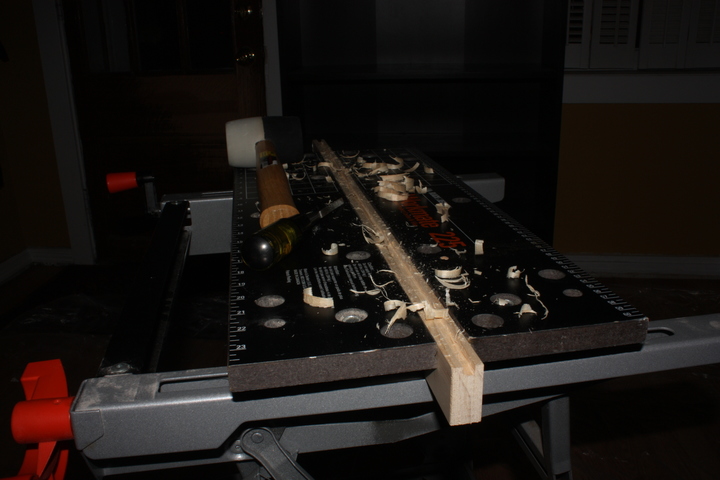
The first stick took a long time to chisel. At first I thought this was a mistake. "Maybe I'm not doing it right," I thought.
After about half way through the second stick, I was already moving a lot quicker. The fourth stick took me about as long to chisel as it would for me to route, although I have to admit that I'm an amateur using a router as well.
Also, after trying both methods, I have to say that chiseling is much more relaxing and enjoyable than routing. I got a much stronger sense of "I made this" pride using hand tools.
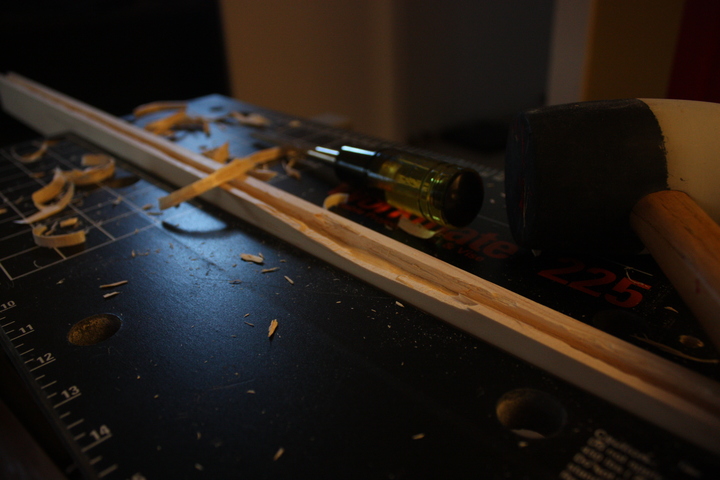
Of course, there are always mistakes when doing anything for the first time. This is what happens when you don't cut make the side cuts of the groove wide enough to fit the chisel.
Luckily, because it's chiseled and not routed/ground off, I was able to simply glue the piece back into place.
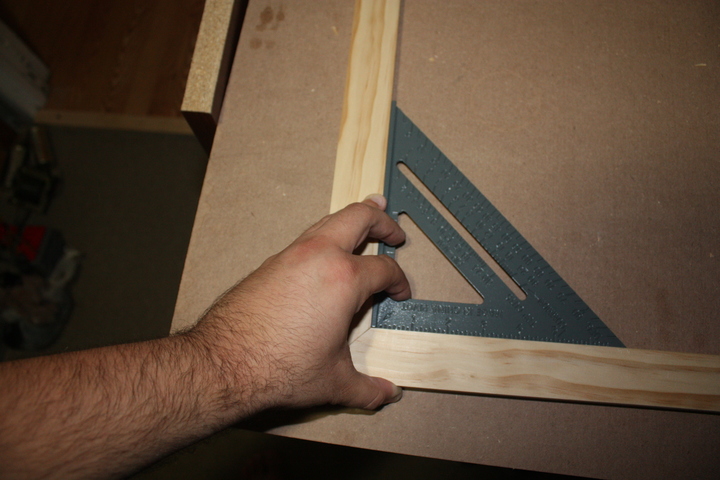
I cut the frame to size with a miter box and backsaw. I was quite happy with how square all of my corners were. It was just as perfect as if I used a miter saw, with a few huge advantages.
- I could do this at 1 o'clock in the morning without waking anybody up.
- I didn't have to dig out the miter saw.
- I didn't have to find a safe, stable work surface which didn't exist in my old apartment.
- A miter box is small enough that I could use it almost anywhere.
- No access to an electrical socket is needed.
- It is extremely easy to clean up after a miter box, especially if it's mounted over a garbage can. No saw dust is kicked up into the air.
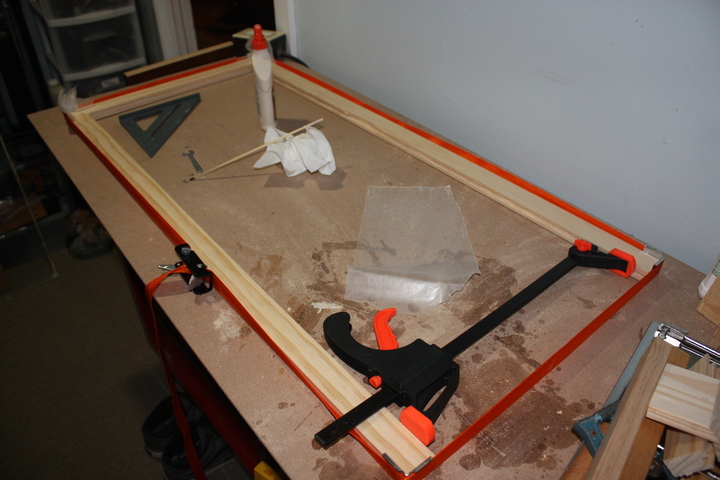
Rather than try to balance the glass pane while I glued all four pieces of the frame together, I decided to glue part of the frame together and slide the glass into it.
I glued three pieces of the frame together, holding it together with a strap clamp. I kept the sides parallel and the corners square by using a reversed trigger clamp.
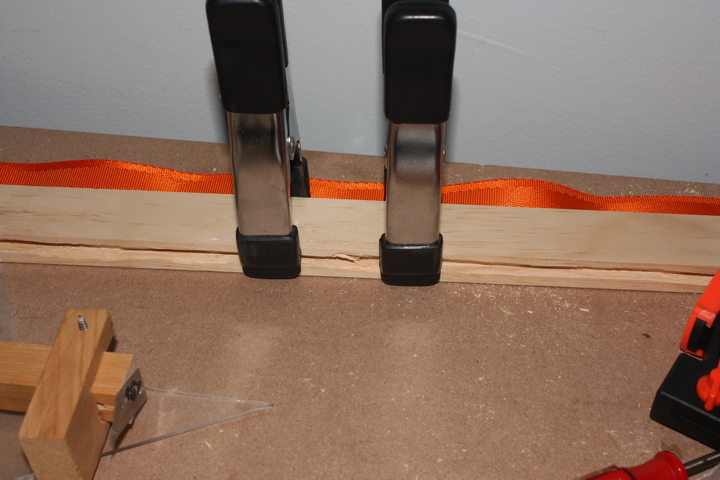
Once dry, I fixed my chiseling mistake with a dab of glue and spring clamps. I originally intended to make this the inside face of the door, but the fix glued together so well that I actually couldn't find it again. That's another point in the "I'm glad I chiseled this" category.
